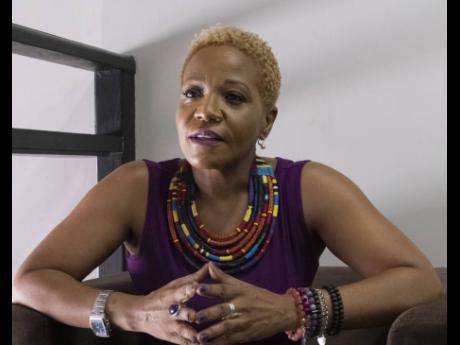Professor Hope urges more support for men
Sociologist and cultural analyst Professor Donna Hope says there is an urgent need for safe spaces and support systems for Jamaican men, particularly those from the working class.
"Our culture forces men to be a certain way--it encourages them to be tough and hardcore, especially working-class black men. This is what is expected of a man: to provide, to succeed, and to show no emotion because that is seen as weakness," she told THE STAR.
Her comments come amid a series of recent troubling incidents, including: the shooting of a man believed to be mentally ill on December 30 in Dovecot Cemetery; the shooting of a man who attacked his father in Manchester on January 6; a former firefighter climbing atop the Half-Way Tree Transport Centre, also on Monday; and the suspected suicide of a man in Portmore, whose body was found yesterday.
"These incidents are just the most visible manifestations of a deeper crisis," Hope explained. "Too many of our men are not okay. They lack the necessary support and empathy. Personal and work-related stress, depression, breakdowns, drug-induced mental breaks, and other forms of mental illness are stealing the lives of our men. And Jamaica, as a society, has failed to tackle these issues."
She opined that while there is much focus on empowering women, there is a significant gap when it comes to providing similar resources for men.
"They are hurting, but they don't have anyone to talk to because male friends often discourage openness. 'Man a wall,' they say," she said. "When men go to the bar and talk all kinds of things, that is the only place they can ease some things off themselves. There is no structured space where they feel safe to do that."
She added that Jamaican masculinity is heavily shaped by maternal figures, as mothers are often the sole source of nurturing in their lives.
"Babymothers, on the other hand, are often combative, demanding money and support, which adds to the strain," she said. Hope urged for a balanced approach to gender empowerment, highlighting that the lack of support for men also affects relationships.
"My students in their early 20s, many of them young women, are coming out with degrees, driving cars, and buying houses," she said. "But they're finding it difficult to find age-appropriate husbands who are equally empowered and ready because of these challenges men are facing."
According to Hope, some traditional avenues of support for men, such as church-based programmes and mentoring through old boys' associations, have diminished over time. She called for the government and society to take more deliberate steps to address the crisis with more structured systems to support young men and help them deal with their challenges.
Hope pledged to shift more of her focus toward addressing these issues.






































